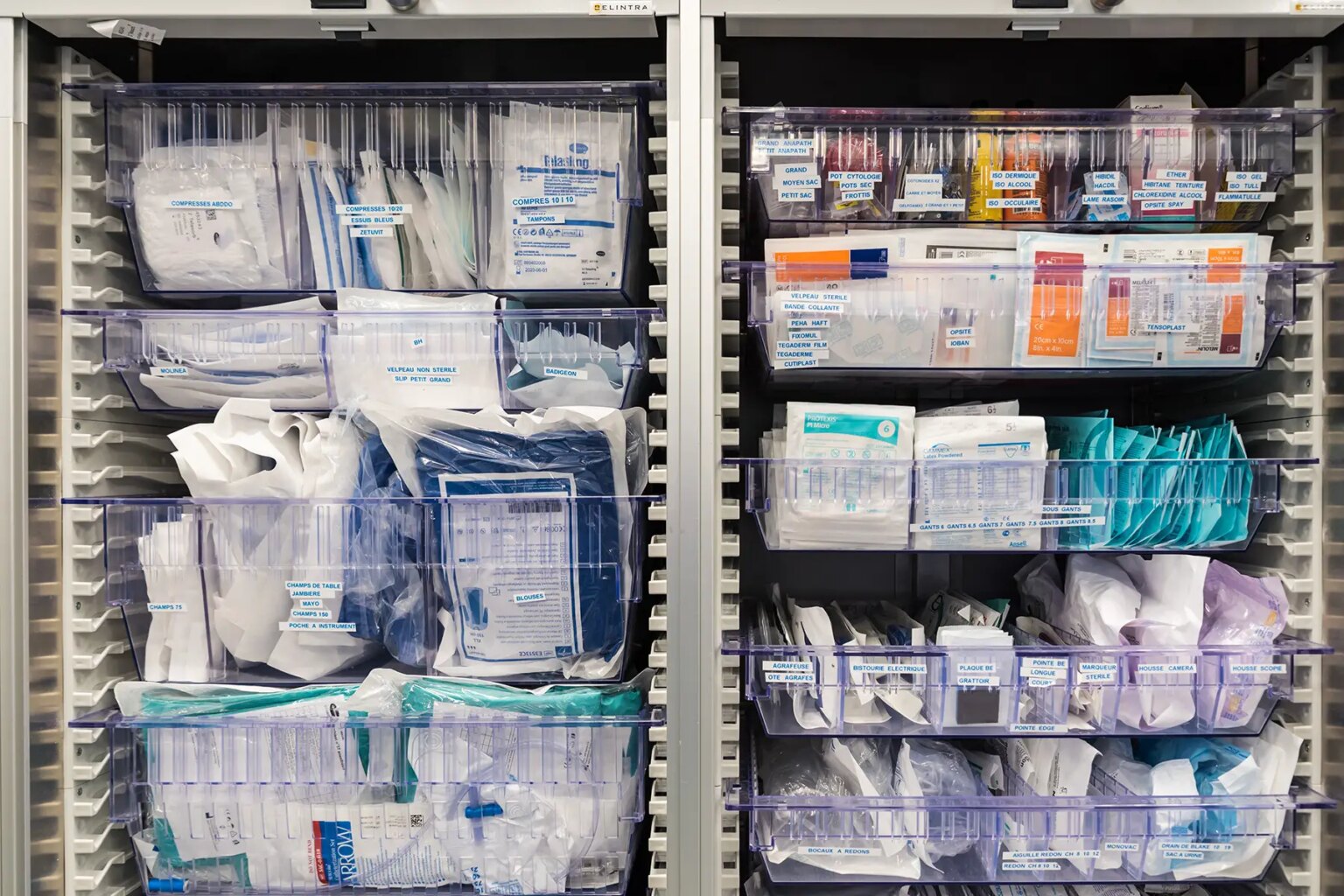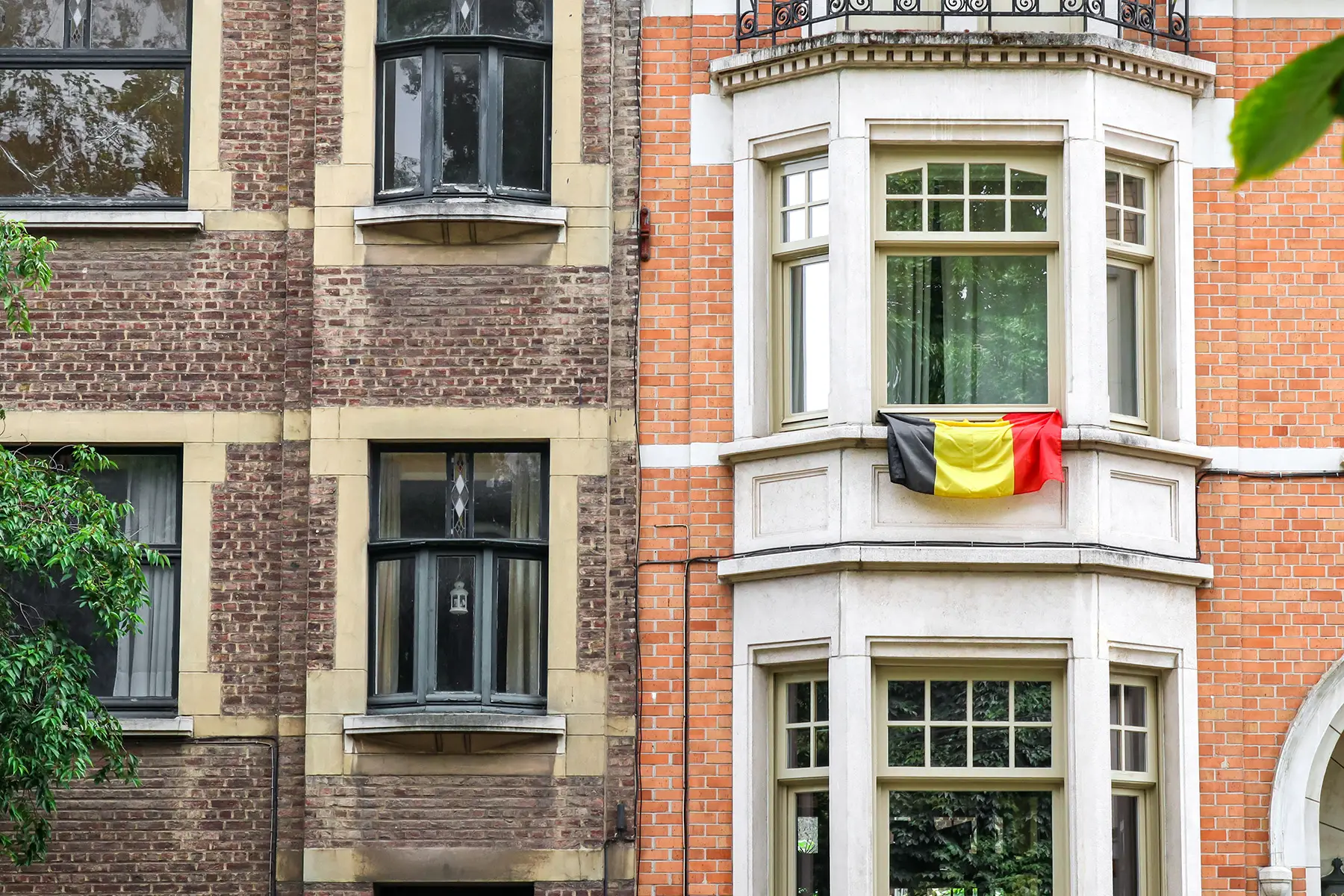Living in Belgium comes with plenty of perks, and access to quality healthcare is one of them. But before you can book that doctor’s appointment or get a prescription filled, you’ll need to sort out health insurance.
Whether you’re here for work, study, or a fresh start, this article walks you through how it all works, from choosing a mutualité to knowing what’s covered and when private insurance might come in handy.
Let’s dive in:
Cigna Global
Enjoy peace of mind while living in Belgium with Cigna Global’s long-term international health insurance plans (12+ months). Get tailored coverage, direct billing with many providers, complex case management, and global care on demand, with access to a network of 1.5+ million doctors, specialists, and therapists.
Health insurance in the Belgian healthcare system
Belgium has universal healthcare, consisting of public regulation and private coverage. That means that the government regulates fees and core benefits, but private (non-profit) health insurance funds (Dutch: ziekenfonds, French: mutuelle) provide the actual coverage.
The National Institute for Health and Disability Insurance (Dutch: Rijksinstituut voor Ziekte- en Invaliditeitsverzekering – RIZIV, French: Institut National d’Assurance Maladie-Invalidité – INAMI) oversees the insurance funds in Belgium. Private health insurance is regulated by the Financial Services and Markets Authority (FSMA – Dutch: Autoriteit voor Financiële Diensten en Markten, French: L’Autorité des services et marchés financiers).
A mix of public and private coverage
Public insurance funds cover essential healthcare in Belgium, including doctor visits and hospital care. However, most treatments require copayments (Dutch: remgeld, French: ticket modérateur). Other medical care, including what may feel essential, like contraceptives and certain dental procedures, is not covered at all.
That’s where private (top-up) health insurance comes in.

It’s very common for Belgian residents to take out private insurance to bridge any out-of-pocket costs. Aside from that, private insurance also gives access to premium health services like private hospital rooms and certain specialist treatment (e.g., private mental healthcare).
Who needs health insurance in Belgium?
Health insurance is mandatory in Belgium. It doesn’t matter if you are a tourist on a stag do or a Belgian citizen whose family roots go back centuries: if you stay in the country, you must have medical insurance.
If you are a new resident, you may be able to bill any medical costs to your home country:
- Expats from the EU or EFTA (European Free Trade Association – Iceland, Liechtenstein, Norway, and Switzerland) can use their European Health Insurance Card (EHIC – Dutch: Europese ziekteverzekeringskaart – EZVK, French: carte Européenne d’assurance maladie – CEAM)
- People from the UK can access public healthcare with their Global Health Insurance Card (GHIC)
- If you don’t have an EHIC or GHIC, you can use an S1 form to transfer your health insurance rights from your home country to Belgium, or take out private health insurance
- Nationals from other countries must have private health insurance to come to Belgium
Business & Expats Health Insurance
Looking for expat-friendly health insurance in Belgium? Business & Expats Health insurance provides a dedicated service for families, individuals, and businesses moving to Belgium. With competitive benefits, expert advice, and fast reimbursements on all treatments, choose Business & Expats today.
How does public health insurance work in Belgium?
Health insurance funds pay for public healthcare in Belgium. These non-profit funds – or mutualité – are financed through a combination of taxes, social security contributions, and mandatory insurance fees. As a side note, this is also a good indication whether you need to have public health insurance as a foreign resident: if you contribute to the social security system, you must be registered with a mutualité.

All insurance funds offer the same medical coverage, which is regulated by the government. The main difference between them, however, is that some are affiliated with certain religions or political parties. They also offer (slightly) different top-up policies, should you want additional coverage.
You can find all available ziekenfondsen and mutuelles on the RIZIV/INAMI website.
Who can access public health insurance in Belgium?
Before we dive into the nitty-gritty, here’s a quick overview of who needs what type of health insurance:
| What’s your status? | Can you access public health insurance? | Do you need private health insurance? |
| Employee of a Belgian company | Yes | Only if you want 100% coverage |
| Employee of a foreign company | Yes, if you are paying Belgian social security; no, if you are paying foreign social security | It depends on your individual situation |
| Job seeker | Yes, if you are paying Belgian social security; no, if you are paying foreign social security | It depends on your individual situation |
| Student | Yes, through your EHIC if you are from an EU/EFTA country, and through your GHIC if you are from the UK. If you don’t have an EHIC, you can use the S1 form to transfer your existing medical benefits. Others may register for Belgian public health insurance. However, if you’re staying less than six months, this may not be advantageous. | It depends on your individual situation |
| Pensioner | Yes Retirees can also use their EHIC if they are from an EU/EFTA country, or their GHIC if they are from the UK. If you don’t have an EHIC, you can use the S1 form to transfer your existing medical benefits. | Only if you want 100% coverage |
| Asylum seekers | No | Only if you want 100% coverage |
| Recognized refugees | Yes | Only if you want 100% coverage |
Salaried workers and freelancers
Anyone working in Belgium must register with a public health insurance fund. Employers usually sign up their workers at the start of the job contract, while freelancers are required to register themselves.
(Unemployed) job seekers with or without an income
If you receive unemployment benefits, you have mandatory public health insurance in Belgium. If you cannot afford any extras, you can also join the government-run CAAMI/HZIV (Dutch: Hulpkas voor Ziekte- en Invaliditeitsverzekering, French: Caisse Auxiliaire d’Assurance Maladie-Invalidité), which offers the absolute base insurance option.

When you are a foreign job seeker who has come to Belgium to look for work, you have a couple of options for health insurance:
- Expats from the EU/EFTA/UK can use their EHIC/GHIC to bill any medical costs to their home country
- Expats from elsewhere must have private health insurance as part of their visa application
Health insurance for children and students
Minor children get free healthcare in Belgium; they are automatically covered by their parents’ or guardians’ health insurance. When they turn 18, they can remain covered as a dependent until they start working, claim unemployment insurance, or become financially independent.
Students can stay dependent on their parents’ or guardians’ health insurance until they graduate or turn 26. International students can either:
- Access public healthcare with your EHIC/GHIC
- Take out private health insurance to cover the duration of your semester(s) abroad
Health insurance for retired pensioners
Pensioners must sign up for public health insurance, including foreign seniors who want to build a life in Belgium. If you continue to claim a pension (and pay social security) elsewhere, you may use your home country’s public healthcare rights (by filling out an S1 form) or get private insurance.

Short-term visitors and tourists
Tourists visiting Belgium from a visa-exempt country don’t need health insurance to enter the country. However, it’s a good idea to have travel health insurance, just in case. Belgian medical care is of high quality, but can be expensive if you have to pay for it yourself.
If you need a Schengen visa to enter Belgium, you’ll have to show proof of health insurance during your application. The insurance must cover at least €30,000, work in all Schengen countries, and be valid for your entire stay.
Asylum seekers and refugees
Asylum seekers are not required to register for public health insurance; instead, they can access urgent medical care in Belgium without any fuss. Refugees do need to register with an insurance fund once their status is recognized.
What does public health insurance cover in Belgium?
Public health insurance covers a range of essential services, such as doctor visits, basic dental care, vaccinations, medication, hospital and emergency care, and cancer prevention screenings. While some treatments are free, others are heavily subsidized and require patients to pay small fees. For example, you can expect to pay 10–20% of the costs for doctors, hospitals, and clinics, and 15–50% of most prescription medications.
Having said that, the coverage also depends on the healthcare provider.

Basically, the Belgian government regulates healthcare fees, and most providers will charge just that. However, if they are non-conventioned, they can and will charge more (up to 200%).
Unfortunately for patients, mutualités only cover the standard rate set by the government and not the full amount billed by the health service. So, if a doctor charges €150 and the regulated price is €40, you will have to pay the remaining €110.
With standard family doctors or GPs (Dutch: huisarts, French: médecin généraliste), this isn’t usually a big deal. In 2021, around 87.1% were conventioned, so you don’t have to look too far to avoid the extra costs. However, medical specialists were less likely to be regulated; only 56.4% of active specialists were conventioned.
Can foreigners get Belgian health insurance?
Yes, expats can register with any mutualité they want.
It’s worth noting, though, that most insurance funds will delay coverage until six months after you sign up. This means that, although you do pay insurance fees, you’re responsible for any treatment costs you incur in Belgium. Again, this is when private or international health insurance can help you out.
If you want to avoid the coverage gap, these international insurers cater specifically to expats:
How to apply for public health insurance in Belgium
What to do before your move to Belgium
Your first step – even before moving to Belgium – is to contact your country’s public healthcare authority. They will be able to advise you on your rights and, if you’re from the EU, can fill out the S1 form, should you need it.
Of course, citizens from other countries will need to take out private health insurance to qualify for a visa.
How to register once you are in Belgium
After the big move, there are a couple of steps to take to sign up for public healthcare:
You must first register your address with your local municipality. You will then receive a National Register Number (Dutch: rijksregisternummer – RRN, French: numéro de registre national – NNR), which is linked to your taxes.
Using the RRN/NRN, you can sign up for social security. Usually, your new employer will usually take care of this process. However, if you’re unemployed, you can register yourself by visiting the nearest social security office (Dutch: Openbaar Centrum voor Maatschappelijk Welzijn – OCMW, French: Centre public d’action sociale – CPAS). With that completed, you will receive a social security card, known as an ISI+ card.
Using this card, you can register for an insurance fund. Again, if you have a job, your employer will take care of this and sign you up with their collective fund. If you are unemployed, you can contact the mutualité directly.
All mutualités offer the same basic health coverage, that’s why employers often enroll you in one automatically. However, you can also choose your own fund, particularly if you want to register with one based on your religious or political affiliation. Those who want a neutral health insurance fund often go with CAAMI/HZIV.

Belgian health insurance card: ISI+ card
After registration, your health insurance will be linked to your social security card (ISI+ card). This serves as proof of your insurance status and contains your medical records (GMD – Dutch: Globaal Medisch Dossier, French: Dossier Médical Global).
It is recommended that you always carry this card with you, since it gives you access to public doctors, hospitals, and health centers throughout the country. It also allows your doctor to upload prescriptions for medications, should you need them.
If you’d like to travel through Europe, you can also request a free EHIC from your insurance fund.
How to get money back from health insurance
In some cases (e.g., GP visits), you pay for treatment first and then submit a reimbursement claim to your insurance. In others (e.g., prescription medication and hospital stays), the healthcare provider will settle the bill directly with the insurance fund, and you will only be charged the copayment.
The restitution process differs per insurance fund, so check their website to see what their policy is. But in general:
- If you receive a paper certificate, you have to send it in with an insurance sticker (Dutch: kleefbriefje or kleefzegel or klever, French: vignette) attached. You can order these stickers from your health insurance fund. Most mutualités also provide free pre-printed envelopes to use for your claim.
- If the health service provides a digital receipt, you can upload it online or in the app to submit your claim.
Again, double-check with your insurance fund what their reimbursement policy is; some allow you to scan or take a photo of the bill and upload it online.
Overview of private health insurance in Belgium
It’s common for Belgian residents to top up their public coverage with private health insurance. Some employers even offer this as an employment benefit. In 2024, around 80% of the population had hospitalization insurance (Dutch: hospitalisatieverzekering, French: assurance hospitalisation), 15% had ambulatory insurance, and 19% had dental insurance.

Some insurers cater to students, working parents, or pensioners, and others to internationals with global coverage and special English- or other foreign language services.
Advantages of private health insurance in Belgium
As mentioned before, private health insurance covers treatments that are excluded from Belgium’s public health sector (e.g., alternative medicine). Aside from that, other benefits include:
- No copayments or non-conventioned fees
- Additional coverage for non-essential treatment
- Wider range of healthcare providers who offer personalized care
- Premium levels of comfort (i.e., private rooms) in hospitals
- Access to better and more efficient medical care
- Coverage abroad
International health insurance for expats in Belgium
Depending on your situation, some foreigners moving to Belgium may benefit from an international health insurance plan:
- Non-EU/EFTA/UK expats will need to prove that they have valid health insurance coverage before they can enter the country
- Public health insurance funds delay coverage until six months after you sign up
- Public healthcare only partially covers essential treatment
- Belgium has many non-conventioned doctors and specialists, which can result in large out-of-pocket expenses
- Finally, internationals who travel a lot would benefit more from global health coverage

APRIL International
Looking for expat-friendly health insurance in Belgium? APRIL International has a long history of providing health coverage tailored to the unique needs of the expat lifestyle, ensuring peace of mind for you and your family. Whether you’re relocating to Belgium or simply staying short-term, APRIL International has the right policy for you.
How to apply for private health insurance in Belgium
With the number of health insurance options in Belgium, it makes sense to look around and compare plans. Aside from the affordability, things you could consider include:
| Consideration | Questions to ask |
| Does the policy suit your needs | Are you able to select what you need and remove what you don’t? |
| Payment process | Will your insurer settle bills directly, or do you have to pay first and then claim reimbursement? How complicated and/or time-consuming is the process? |
| Special offers and incentives | Can you get a discount on your premium by signing up for a certain plan? Does the insurer offer reward programs? |
| Overseas coverage | Is travel insurance offered, and do you need it? |
| Customer feedback | How does the company score on consumer ratings websites? |
| Cancellation policy | How easy is it to change to another provider? Will you have to pay to cancel? |
Be sure to ask your employer about their healthcare plan as well; you may be able to sign up with a collective insurance fund at a discount.
Once you’ve decided on a plan, you can contact the insurance company directly to sign up. They will be more than happy to walk you through the process. Beware of pushy salespeople, though! You might walk away with a completely different policy than you had in mind.

Private and international insurance providers
In addition to the Belgian health insurance funds, there are also international insurers who cater specifically to expats. For example, Business & Expats Health Insurance is ideal for newcomers to Belgium who want to avoid a coverage gap.
For those who travel outside the country a lot and anyone who prefers expat-focused care, these companies can offer great solutions:
The Munich-headquartered financial services company offers international health insurance plans for expat students, professionals, couples and families. Depending on the policy, Allianz Care covers everyday medical expenses, emergency treatment, dental consultations, maternity, surgery, and outpatient fees.
APRIL International provides health insurance solutions for expats and globally mobile individuals in over 180 countries. Their plans are highly flexible, allowing customers to tailor coverage and pricing to their needs. Policyholders can also choose various deductible options to suit their budget and lifestyle.
Business & Expats Health Insurance offers tailored solutions for expats living and working in Belgium. Their plans are designed with flexibility in mind, making it easy to adjust coverage and pricing based on individual needs. Customers can personalize their plan with optional add-ons and cost-sharing options that suit their healthcare preferences.
The American health services company serves expats and globally mobile individuals in more than 200 international jurisdictions. Cigna Global’s policies are easily customized to coverage and cost requirements and customers can pick from three coverage levels, modular plans, and several cost-share options.
How much does Belgian health insurance cost?
Is public health insurance in Belgium free?
Public health insurance in Belgium is indeed free… If you are under 26, that is. Residents past that age pay for mandatory insurance through a combination of taxes, social security contributions, and membership fees.
Your employer or pension provider will withhold a percentage of your gross monthly salary or pension to pay for healthcare. In 2025, this was 4.7%, while freelancers must pay at least €871.71 per quarter. Health insurance funds also require you to pay an annual membership fee (set by the government). In 2025, this was €64 (though some people are eligible for a reduced premium of €32).

How much is private health insurance in Belgium?
When it comes to private health insurance, most insurers in Belgium have different policy levels, ranging from basic to comprehensive. Premiums usually depend on:
- Extra coverage (e.g., dental care or hospitalization)
- Coverage location (i.e., whether the policy covers abroad)
- Personal information, such as age and health conditions
Depending on the extra coverage, you can expect to pay around €10–20 per month for basic medical care. For more comprehensive coverage, like dental care, alternative medicine, or private hospital rooms, prices can go up to €70 per month.
Again, it’s always smart to research and compare insurance policies to get the best healthcare coverage.
Useful resources
- Health, Food Chain Safety, and Environment – official government website for the ministry responsible for Belgian healthcare
- MyHealth – government e-portal with healthcare information and your medical records
- Vlaanderen Health Insurance – official government website with information on medical insurance in Flanders
- Wallonia Health – official government website with information on medical insurance in Wallonia















